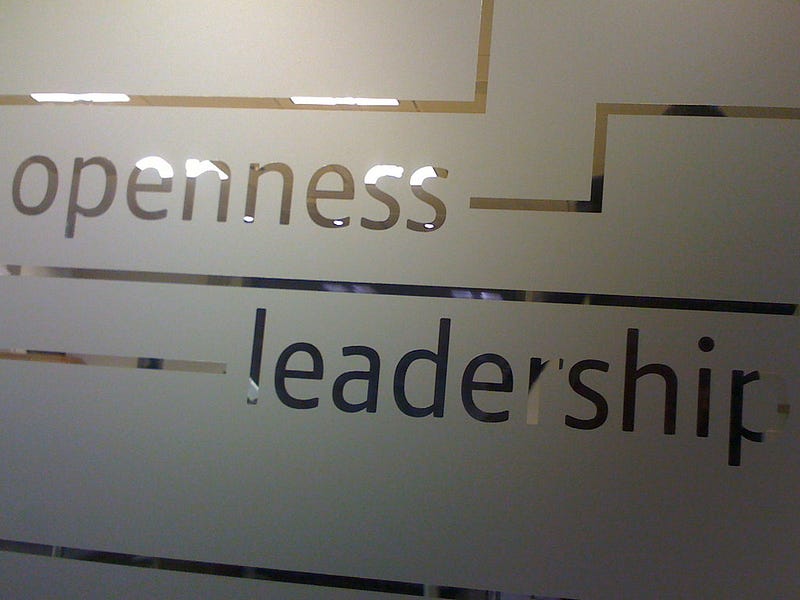I see leadership as a guide-star: your job as a leader is not to demand that everyone conform to your standards, your job is to elicit from people the very best that they are capable of providing. Different environments and circumstances require variations of duty load, but, ultimately, necessary and less desirable tasks should be spread out among everyone — and everyone should be able to simultaneously tackle work that they personally enjoy.
I’ve identified some core traits of leadership that I believe are vital for the good functioning of any organization.
- Self-discipline: The ability to self-start, actively engage with projects and people, and take responsibility for communicating one’s own needs — fundamental leadership quality.
A leader should encourage and promote people who tackle projects on their own initiative, and provide lists of projects that might be undertaken freely by anyone. People can be led to the work that needs to be done, and then given the choice about how to do it, and what to do.
In this way, a leader should also promote the use of tools that help build self-discipline, including active R&R. Highlight that willpower is limited, but ritualized systems are mutually-supportive and lead to a superstructure that can create vast change. - Community: What is good for the community is good for the individual, and cared-for individuals who are given trust and responsibility are good for the community.
A leader should highlight how the community can support the individual, and make that support felt in every way possible. Encourage the individuals to put in the fullness of their effort in order to enhance and extend the support that the community can provide. - Compassion: Life is suffering, people make mistakes, and perfection is a lie.
A leader must foster an environment where people feel safe, trusted, and cared for. But, likewise, the leader should make clear an expectation that everyone attempts to engage with care, respect, and kindness.
A good leader fosters active improvement of social skills through daily and weekly training. - Curiosity: Continual practice is the only worthwhile goal, and this requires a mind that is insatiably interested in possibilities and denies absolutism.
A curious leader is one who actively engages with perspectives other than their own, even if they strongly disagree. Likewise, curious leader seeks to continually better themselves, and then bring those improvements into the group as an exemplar — to teach by being. - Reliability: Ultimately, people should commit to what they need to do, and work hard to make projects happen.
A leader should try to be an exemplar — be the kind of person others can look up to. When a leader is in a position to, say, teach a class, they should ensure that they’re taking responsibility for presenting the course material well and managing class support systems in the most effective manner. Such a leader should work hard to recognize, and accept responsibility for their flaws and failings, and to do so publicly.
A leader should stand up for what is right, even if it’s personally difficult. A leader should respect people’s time and should respect people’s flaws. And a reliable leader is one who can practice stoicism in the face of strong emotion.
I have met a number of poor leaders in my time, from the heads of religious groups who learned to accept (and even promote) cultishness from their congregations to those who could not maintain strong communication standards with their teams of volunteers. It is largely through an observation of these leaders and their failings that I have arrived at my nascent ideas of what makes a leadership position work.
I feel the most motivated when I am cared for, supported, treated fairly, and given the responsibility to tackle tasks that matter. I work best when I’m publicly praised, and when I feel that the praise is truly merited because I did my best. I am at my best as a worker when I know that there are strong safety nets to carry me forward and that mistakes are judged as learning moments, not failures. In leadership positions, these are the same things I seek to foster.
Hi there! I’m Odin Halvorson, a librarian, independent scholar, film fanatic, fiction author, and tech enthusiast. If you like my work and want to support me, please consider subscribing!

